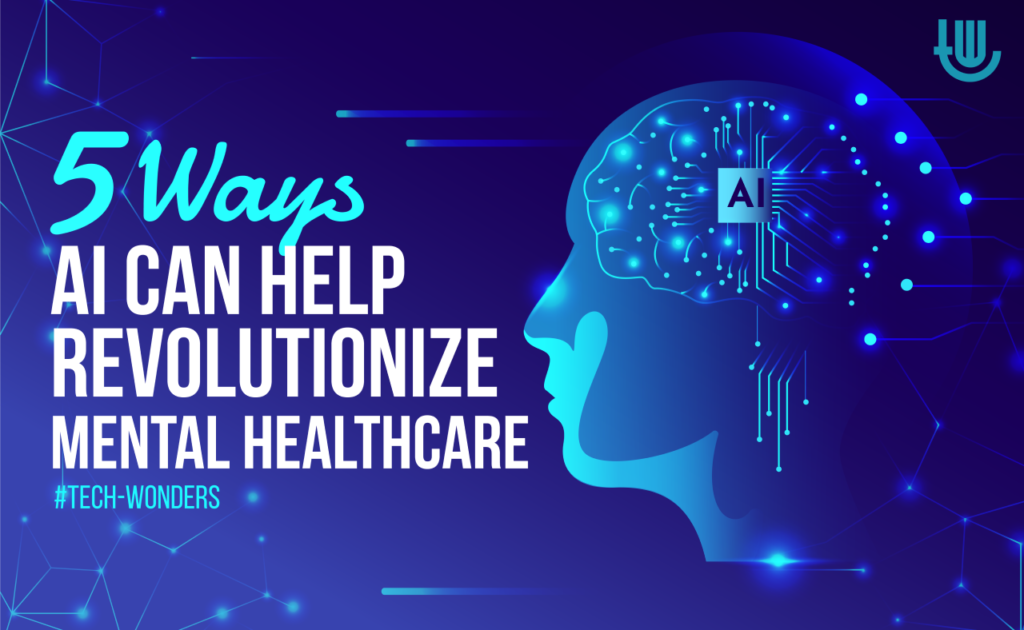Psychology has seen a drastic revolution in the present times. Some of the psychology modules have integrated modern technologies to improve precision and accuracy in identifying disorders. Thus, here are the five reasons how AI will revolutionize psychiatry and fields of psychology. Predictive models, behavioral statistics, and improved user experience are all the boosts given by applied sciences to assist psychiatry. Read on to more about its applications and scope.
There are already some applications of AI in psychiatry, and many doctors believe that data training models in various systems can reduce the responsibilities and work. Also, the benefit of having an intelligent system is reduced human errors to a great extent. Thus, without wasting any more time, let’s read more about AI revolutionizing psychiatry and fields of psychology.

Assisting in psychoanalysis
Artificial Intelligence doesn’t provide a comprehensive psychoanalysis treatment but can assist doctors in making certain processes redundant. Various theories and papers suggest that these methods are possible, and a fair share of research is also being done.
Certain frameworks can aid the patients in identifying whether they have a disorder or not without even having to reach a doctor. With appropriate statistics generated by these psychoanalytic frameworks, a patient can be diagnosed privately. Also, they can reach out to the doctor if absolute help is required.
With this significant progress in psychoanalysis, a barrier of shyness can be eliminated where the tests taken by the patients remain with them.
Identifying patient’s rhythms in mobility
It is often observed that patients in different states of mind possess different mobility rhythms. Sensors embedded into devices such as mobile phones can identify changes in patterns of a patients’ behavior such as typing speed, tracking keywords, speech usage, and similar other features.
With the help of trained models used by the AI systems, the machine can intelligently identify the current state of mind and predict the future conditions of the patient.
Optimization of patient’s mental health
Often, the training dataset embedded in the systems can make correlational patterns in the current state of the patient matching with the historical records. This can help the machine to recognize the patient’s mental health and provide optimized solutions to the doctors.
Doctors have options to choose from that are concluded with a learned model to predict the accurate line of treatment. Also, doctors have a better hand to decide a proper diagnosis for the patients.
Diagnosis of diseases
Machines have reached a far way to confidently affirm diseases such as Alzheimer’s, depression, and anxiety. With the computerized techniques that track actions and brainwaves to match the samples of known disorders.
Today’s tools used by professionals can use data mining methods aided with expert suggestions to confidently diagnose a problem in a person and avoid false positives. With some more research and advancements in psychology, better processes and a wide range of issues can be effectively addressed by machines.
Administrative documentation and updating medical records
Intelligent AI machines can group the patients and attribute them to better administration. This also includes tracking a patient’s medical treatment, suggesting the best medical facility in the vicinity by checking his mental traits during the breakdown.
Considering the medicines, AI can also follow the medicinal usage, set auto-reminders for the patient, and notify the pharmaceutical distributors to avoid abrupt stoppage.
A system integrated with the network of doctors can facilitate effective retrieval of patient cards and can be maintained just in case the patient is treated with some other doctor in emergencies.
Towards the conclusion
Lastly, another significant impact that AI can cause in psychiatry and psychology is to bring about awareness among society and drastically eliminate the negative stigma associated with mental health. With the development of certain apps, common people are being aware of their mental well-being. Appropriate consultations with bots or doctors on demand can bring many serious illnesses to light that often goes undetected due to lack of awareness.
Thus, this was all about the five reasons how AI would revolutionize psychiatry and fields of psychology. With intelligent systems and appropriate technological environments, a wide range of tedious processes can be brought to rest in psychology. Thus, this is a boon for the patients and also for doctors that help them to focus on what’s necessary. AI can thereby, optimize the patient’s treatment to achieve rapid progress.

Author Bio:
This article has been written by Rishika Desai, B.Tech Computer Engineering graduate with 9.57 CGPA from Vishwakarma Institute of Information Technology (VIIT), Pune. Currently works as Threat Intelligence Researcher in CloudSEK. She is a good dancer, poet and a writer. Animal love engulfs her heart and content writing comprises her present. You can follow Rishika on Twitter at @ich_rish99.